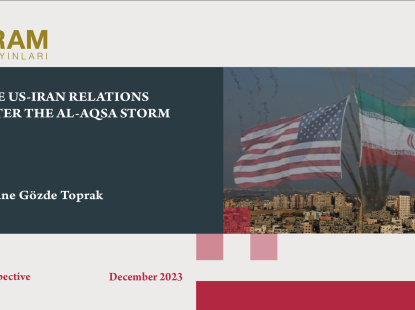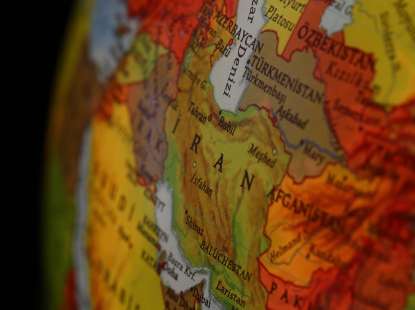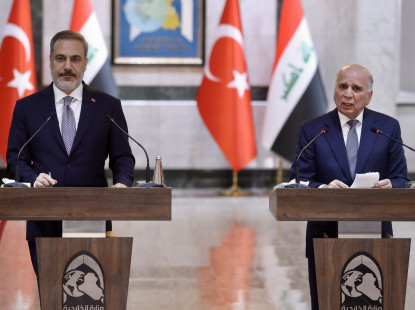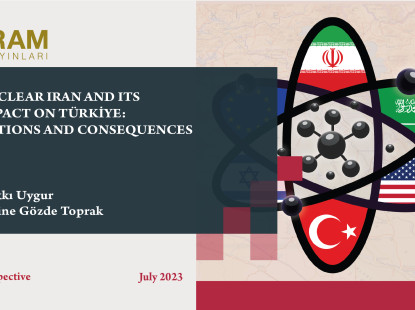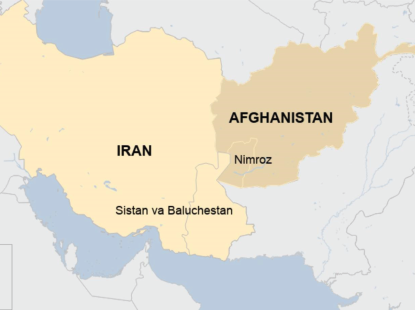Iran’s Attitude Towards the UN Votes Concerning the Russia-Ukraine War
In the voting that took place in United Nations (UN) General Assembly on Thursday, April 7, Russia’s membership in UN Human Rights Council (UNHRC) was decided to be suspended due to its human rights violations in Ukraine. While 93 states supported the suspension of Russia’s UNHRC membership, 58 states abstained in the vote. On the other hand, 24 states, including Iran, maintained their support for Russia by voting against it. None of the member states of the Shanghai Cooperation Organization voted against Russia. Whereas seven countries, along with Iran, supported Russia, India and Pakistan abstained in the voting.
Iran has become one of the countries which oppose the suspension of Russia’s UNHRC membership. In his speech at the UN General Assembly on Thursday, April 7, the permanent representative of Iran to the UN, Majid Takht-Ravanchi, stated that membership in the Council should not be politicized. Takht-Ravanchi said that the draft resolution, which suspends Russia’s membership in the UNHRC, was created for political reasons and such actions harm the UN’s impartiality. He stated that the suspension of Russia’s membership is against the spirit of the UN, adding that “Exploiting the UN's human rights mechanism for political purposes contradicted the idea of universality and non-selective treatment of human rights matters”. On the other hand, it has been seen that the Iranian representative is aware of the worsening humanitarian situation in Ukraine. In his statements, Takht-Ravanchi expressed his concerns over Ukraine's deteriorating humanitarian situation while he avoided any statement against Russia and indicated that the suspension of Russia’s UNHRC membership is not a solution.
Moreover, since the outbreak of the Russia-Ukraine War, Iran has come into prominence as one of the states that supports Russia through its discourse and votes in the UN. Previously, Iranian government officials, including President Ebrahim Raisi and the Foreign Minister Hossein Amir-Abdollahian, stated that the reason behind the War was the expansion of NATO and the actions of the West and expressed their opinion that Russia’s security concerns should be taken into consideration. Khamenei was another figure who manifested his support to Russia once again through his statement concerning the Russia-Ukraine War. In his statement on Tuesday, March 1, Khamenei specified that the root cause of the conflict was the "crisis-creating policy of the USA" and said that “Ukraine had fallen victim to the crisis created by the USA”.
On the next day of Khamenei’s statements, on Wednesday, March 2, Iran maintained its relevant policy during the Eleventh Emergency Special Session of the United Nations (UN) General Assembly by abstaining in the voting on the draft resolution, which foresees the condemnation of Russia and the immediate withdrawal of its troops from Ukraine. In his declarations after the vote, Takht-Ravanchi underlined that the sovereignty and territorial integrity of all countries should be respected and stated that “We note that the current complexities in the fragile region of Eastern Europe have been exacerbated by the provocative actions and decisions of the US and NATO. The security concerns of Russia must be respected.
Considering the relevant discourses and Iran’s votes in the UN in favor of Russia, two deductions have come to the surface. Firstly, the overlap of the Russia-Ukraine War with the nuclear negotiations, which continue in Vienna between Iran and the P4+1 countries, has become decisive for Iran’s attitude towards the issue. Secondly, Tehran considers the possibility that the Vienna talks, which are currently suspended, will not lead to a positive outcome for Iran and does not want to confront Moscow. Even though there is a significant circle in Iran expressing that Russia should not be trusted, the political separation of Russia and Iran, which is under sanctions, would cause an increase in Iran’s isolation in terms of politics and economics. In conclusion, considering Russia's continued cooperation with Iran while the sanctions are being imposed on Iran, its support for the initiation of Iran’s SCO membership process, and the possibility that the Vienna talks will not lead to a positive outcome, it is possible to say that Iran's support to Russia will continue during the War process, including the UN votes.
- Tags:
- Iran
- Russia
- UN Votes
- Russia-Ukraine War





